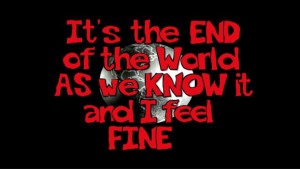The Radical Film Network
The Radical Film Network: Sustaining Alternative Film Culture: Dr Steve Presence gives us an insight into the RFN’s beginnings and upcoming projects and festivals.
 About the Author:
About the Author:
Dr Steve Presence is a Research Fellow in the Centre for Moving Image Research at the University of the West of England (UWE) Bristol. His research interests include political film culture, documentary and the UK film and television industries. He is a founding co-director of the Bristol Radical Film Festival, convenor of the Radical Film Network and Principal Investigator on the AHRC-funded project, ‘Sustaining Alternative Film Cultures’. He has published a number of articles and book chapters, most recently in Film Studies journal and the Routledge Companion to Cinema and Politics (2016), and is working on his first monograph.
This two-year (2015-17) AHRC-funded International Networking Scheme project is run in collaboration the Radical Film Network (www.radicalfilmnetwork.com), an international network run by and for organisations and individuals involved in politically-engaged and/or aesthetically innovative film culture.
Radical film culture has expanded rapidly in recent years as access to digital technologies has meshed with political, economic and environmental contexts marked by crisis and discontent. From experimental drama-docs (Out on the Street) to anarchist agit-prop (It’s the End of the World As We Know It and I Feel Fine), and from participatory distribution platforms (visionOntv) to grassroots, volunteer-run film festivals (London Feminist Film Festival), progressive, committed cinema is being produced and circulated by organisations around the world in new and exciting ways. Yet despite – or perhaps because of – its rapid growth, radical film culture is dispersed and fragmented: organisations often operate in isolation from one another, unaware of previous groups that have come before them or the wider traditions of which they are a part, and struggle along with little resources and zero funding.
The RFN was designed to help address this problem, and was founded in 2013 by a group of activists, academics, filmmakers and programmers involved in radical film culture in the UK. The aim was to develop a network that would help put those involved in contemporary radical film culture in touch with one another and with previous generations of radical film-makers and activists, and that would support its growth and sustainability in the UK and elsewhere. Since then the RFN has expanded significantly, and currently comprises more than one hundred organisations across twenty countries, ranging from artists’ studios and production collectives to archives, community film co-ops, distributors, film festivals and exhibition venues. Information about each of these organisations is available from their respective profiles on the network’s Directory, which is hosted on the RFN website, and which links out to their own sites. The RFN’s Mailing List, Facebook and Twitter accounts, meanwhile, enable those organisations and other stakeholders involved with radical film culture to share information and ideas around the world. The network held its inaugural conference in Birmingham in February 2015. A second ‘RFN Unconference and Film Festival’ takes place in Glasgow in May (see https://rfnscotland.org/).
The Project
The AHRC-funded project is based around a series of events at four key industry and alternative film festivals in the UK and USA: Liverpool Radical Film Festival (November 2015); Sheffield International Documentary Film Festival (Doc/Fest) (June 2016); Workers Unite Film Festival in New York City (May 2017); and Bristol Radical Film Festival (October 2017). The funding will enable RFN affiliates from across the UK and Europe to meet at the UK events, and for affiliates from North and South America to meet representatives from the UK and Europe at the New York City event. The objectives of the project are both practical and conceptual. A primary practical objective is the consolidation and expansion of the network into a sustainable, long-term entity. Building a sustainable, international network of predominantly unfunded radical film organisations is a significant challenge, and raises a number of questions: how should such a network be structured and organised? What should it aim to be and do? How can responsibilities for maintaining the network be shared among its members?
As well as consolidating relationships within the network, the project also aims to explore different interpretations and approaches to radical film practice (with practice understood as including distribution and exhibition activities as well as production) across geographic, political and aesthetic lines. What is radical film today? What constitutes the contemporary political and aesthetic avant-garde? How do these avant-gardes relate to one another and to the politically-engaged aspects of the mainstream film and television industries, such as those represented by funders such as BRITDOC and distributors such as Dogwoof?
The project also aims to raise the profile and visibility of radical film culture in the UK, and will explore potential relationships between the RFN and other more mainstream organisations designed to support UK film culture, such as the BFI and Cinema For All. To what extent can a network like the RFN interface with these more established modes of institutional support and funding? What are the barriers to such relationships, and how might policy adapt to better support precarious, politically-engaged film cultures?

The Story So Far
The first event in the series took place during the Liverpool Radical Film Festival in November 2015 and featured RFN-affiliated groups from Bath, Bristol, Coventry, Glasgow, Leicester, London, Manchester, Sheffield and Worcester, as well as Dina Pokrajac, the international guest from Subversive Festival (Croatia). Cinema for All, Film Hub Northwest and Central, and Creative Europe also presented their various funding schemes to which RFN members and the network as a whole could apply. The event fostered constructive discussion about how to overcome key areas of disagreement within the network, particularly with regards to funding, structure and relations with external organisations, and a number of avenues of activity emerged from or were furthered by it. More detail about the event and its outcomes is available here: http://radicalfilmnetwork.com/projects/sustaining-alternative-film-cultures/.
Three subsequent events will take place at Sheffield Doc/Fest (10-15 June 2016). The first is a history of Doc/Fest with Professor Sylvia Harvey, one of the festival’s founders and a member of the RFN. The second is a panel discussion on political filmmaking with speakers from China, Egypt, Greece and the UK, and the third will focus on the RFN itself develop ideas from the Liverpool event and discuss plans for the future. This event will also include a report back from the RFN’s second annual conference – which is being organised and funded independently of the AHRC-funded project – that takes place in Glasgow over the MayDay weekend. This promises to be a major event – the largest of its kind ever to have taken place in Scotland – with over thirty radical film organisation taking part in the festival (with the support of Film Hub Scotland, Creative Scotland and the Scottish Trades Union Scotland), and three days of academic discussion and debate at the University of Glasgow (see https://rfnscotland.org/).
Outputs
The principal objective of the project is a more sustainable and established RFN. However, the project will also result in two other key outcomes. The first is an enhanced website that more clearly represents the Directory of affiliated organisations and enables those organisations to be filtered according to the country in which they are based and/or their primary activity (production, distribution, exhibition). A working version of the new site is now available at www.radicalfilmnetwork.com. The second key output will be a book about the RFN and the organisations of which it is comprised. This will combine an introduction to the network with chapters by and about the organisations affiliated to it, as well as academic approaches to the myriad practical, political and theoretical issues relating to radicalism and political film.
![]()
The Radical Film Network project, Sustaining Alternative Film Cultures, is led by Dr Steve Presence (RFN convenor and Principal Investigator), Professor Mike Wayne (Co-Investigator) and Dr Jack Newsinger (Co-Investigator). For more information or to get involved please email stephen2.presence@uwe.ac.uk.
Dr Steve Presence
 Learning on Screen
Learning on Screen